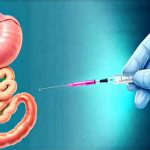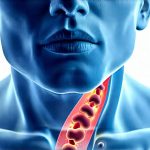Gastroesophageal reflux disease (GERD) is a surprisingly common condition affecting millions worldwide. While heartburn and acid indigestion are often the hallmark symptoms people associate with GERD, its manifestations can be far more subtle and perplexing. Many individuals experience seemingly unrelated symptoms like frequent sighing or excessive air swallowing – behaviors that may not immediately connect to digestive health but could, in fact, be linked to underlying reflux issues. Recognizing these atypical presentations of GERD is crucial for accurate diagnosis and effective management. Often, the connection remains hidden because patients (and even some healthcare professionals) aren’t aware that a chronic digestive condition can express itself through respiratory symptoms or unusual swallowing patterns.
The complexity arises from the bidirectional relationship between the gut and the brain – often referred to as the gut-brain axis. This intricate communication system means that issues in one area frequently impact the other. When stomach acid repeatedly backs up into the esophagus, it doesn’t just cause local irritation; it can trigger a cascade of neurological responses. These responses may manifest as an increased awareness of breathing, leading to frequent sighing, or as discomfort prompting excessive swallowing (aerophagia) in an attempt to soothe the irritated esophagus. It’s essential to understand that these aren’t simply nervous habits but potential signals from the body indicating digestive distress. This article will explore the connection between GERD and these often-overlooked symptoms, offering insight into possible mechanisms and management strategies.
The Link Between GERD and Frequent Sighing
Frequent sighing isn’t typically a sign of a respiratory problem; it’s far more often linked to anxiety or stress, which makes diagnosing its root cause challenging. However, in the context of GERD, frequent sighing can be a compensatory mechanism triggered by esophageal irritation. When stomach acid refluxes into the esophagus, even in small amounts, it can stimulate vagal nerve fibers. The vagus nerve plays a crucial role in regulating many bodily functions including breathing and digestion. This stimulation can lead to an altered perception of breath and trigger involuntary sighs as the body attempts to regulate itself.
The process isn’t always straightforward. Reflux can also cause microaspiration – tiny amounts of stomach contents entering the airway. This triggers a protective reflex that includes increased awareness of breathing and, consequently, frequent sighing. The brain interprets this sensation as needing more air, even when oxygen levels are normal. This creates a vicious cycle where anxiety about breathing exacerbates the sighing, potentially making it harder to differentiate between GERD-related sighs and those stemming from psychological factors.
Importantly, distinguishing between anxiety-driven sighing and GERD-related sighing can be difficult without proper evaluation. A key difference lies in associated symptoms. While anxiety often presents with other signs of stress (racing heart, muscle tension), GERD-related sighing is more likely to be accompanied by subtle digestive complaints like a burning sensation in the chest, a sour taste in the mouth, or difficulty swallowing. It’s also important to note that some individuals may experience ‘silent reflux’ – GERD without typical heartburn symptoms – making diagnosis even trickier. Understanding K21.9 — GERD can be helpful in these situations.
Aerophagia and Esophageal Irritation
Aerophagia, or excessive air swallowing, is another seemingly unrelated symptom that can be closely tied to GERD. People often swallow small amounts of air unconsciously throughout the day; it’s a normal part of eating and drinking. However, individuals with GERD may experience increased aerophagia as a response to esophageal discomfort. The irritation caused by reflux can trigger a feeling of tightness or fullness in the chest, leading to frequent swallowing attempts to relieve the sensation – even when no food or liquid is present.
This habit of excessive swallowing introduces more air into the digestive system, causing bloating, gas, and abdominal discomfort. The added air pressure can also exacerbate reflux symptoms creating a feedback loop. The increased intra-abdominal pressure from trapped gas pushes stomach contents upwards, worsening acid exposure in the esophagus. This creates a cyclical problem where GERD leads to aerophagia, which then worsens GERD.
Furthermore, some individuals may develop conditioned swallowing – meaning they habitually swallow air even when there’s no discomfort present. This can become a learned behavior that persists even after the initial GERD symptoms are managed. Addressing this requires behavioral therapy or techniques to break the habit of unnecessary swallowing. Understanding the underlying connection between reflux and aerophagia is vital for effective treatment, and may be linked to swallowing difficulties.
Identifying Potential Causes & Diagnostic Approaches
Determining whether sighing or air swallowing is related to GERD requires a thorough evaluation, as many other conditions can cause similar symptoms. A healthcare provider will typically start with a detailed medical history, focusing on digestive complaints, breathing patterns, and any associated anxiety or stress levels. They may inquire about dietary habits, lifestyle factors (smoking, alcohol consumption), and medication use.
- Endoscopy: This procedure involves inserting a thin, flexible tube with a camera into the esophagus to visualize the lining and detect any signs of inflammation or damage caused by acid reflux.
- Esophageal Manometry: This test measures the pressure within the esophagus and assesses how well the esophageal muscles are functioning. It can help identify issues like weak lower esophageal sphincter (LES) – a common cause of GERD.
- pH Monitoring: This involves placing a small sensor in the esophagus to measure acid levels over a period of 24 hours or longer. It’s considered the gold standard for diagnosing GERD and determining the severity of reflux episodes.
Beyond these tests, it’s crucial to rule out other potential causes of sighing and aerophagia, such as respiratory conditions (asthma, COPD), anxiety disorders, and certain medications. A differential diagnosis is essential to ensure accurate treatment. It’s important to communicate openly with your doctor about all symptoms you are experiencing, even those that seem unrelated. If esophagitis is present, these tests become even more important.
Lifestyle & Dietary Modifications for Symptom Management
While medication may be necessary in some cases, lifestyle and dietary modifications often play a significant role in managing GERD-related sighing and aerophagia. These changes aim to reduce acid production, minimize reflux episodes, and decrease air swallowing.
- Dietary Adjustments: Avoid trigger foods known to exacerbate reflux, such as fatty foods, spicy foods, chocolate, caffeine, alcohol, and carbonated beverages. Eating smaller, more frequent meals can also help reduce pressure on the stomach. Consider dinner meals carefully to avoid triggering symptoms.
- Lifestyle Changes: Elevate the head of your bed by 6-8 inches to prevent nighttime reflux. Avoid lying down immediately after eating. Quit smoking, as it weakens the LES. Maintain a healthy weight, as obesity increases intra-abdominal pressure.
- Breathing Exercises & Relaxation Techniques: Practicing deep diaphragmatic breathing can help calm the nervous system and reduce anxiety-related sighing. Techniques like yoga, meditation, or mindfulness can also be beneficial for managing stress and improving overall well-being.
Addressing aerophagia specifically involves conscious effort to slow down eating and drinking, avoid gulping air, and minimize talking while eating. Chewing gum and carbonated beverages can also contribute to increased air swallowing, so it’s best to limit or avoid them. Understanding the connection between GERD and other symptoms is key.
When to Seek Professional Help
It’s important to consult a healthcare professional if frequent sighing or air swallowing is persistent, interfering with your daily life, or accompanied by other concerning symptoms. Do not self-diagnose or attempt to treat GERD without proper medical guidance. Seek immediate attention if you experience:
- Difficulty breathing
- Severe chest pain
- Persistent vomiting
- Unintentional weight loss
- Black, tarry stools (indicating bleeding in the digestive tract)
A healthcare provider can accurately diagnose the underlying cause of your symptoms and recommend an appropriate treatment plan. This may include medication (such as proton pump inhibitors or H2 receptor antagonists to reduce acid production), lifestyle modifications, or behavioral therapy. Remember that early diagnosis and management are crucial for preventing complications associated with GERD and improving your quality of life. Moreover, be aware of GERD and bad breath as another potential symptom. Finally, consider the connection between GERD and hiccups.


















